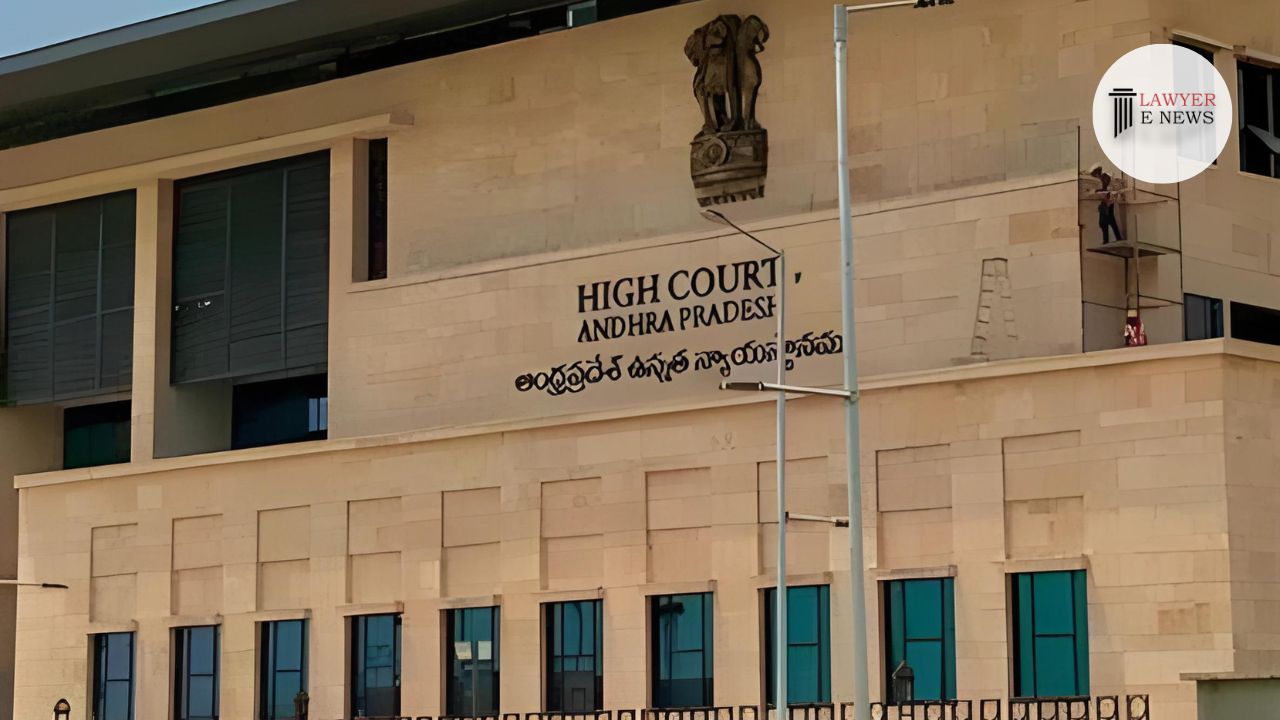-
by Admin
15 February 2026 5:35 AM



Andhra Pradesh High Court, in a judgment delivered by Justices R. Raghunandan Rao and Harinath N, allowed the contempt appeals in the case of Kudipudi Subrahmanyam vs. Sarella Satyanarayana & Ors., setting aside the conviction and sentencing of the appellants under the Contempt of Courts Act, 1971. The court emphasized the need for substantial evidence in contempt cases, particularly when penal consequences are involved.
The case originated from a writ petition filed by Sarella Satyanarayana (1st respondent) in 2022, challenging the actions of the Panchayat Raj officials, who allegedly sought to dispossess him from land measuring Ac. 0.02 ½ cents in Chennada Village, Konaseema District, Andhra Pradesh. The Andhra Pradesh High Court, by its order dated June 30, 2022, directed the Gram Panchayat to pass final speaking orders regarding the dispute and to not take any steps against the respondent until such orders were issued.
However, the respondent later alleged that the appellants, despite the court's clear directions, had demolished structures on his land and forcibly dispossessed him. This led to contempt proceedings in 2023, where the learned Single Judge convicted the appellants and sentenced them to imprisonment and fines for violating the court's earlier order.
The core legal question in the contempt appeal was whether the appellants had willfully violated the court's order by demolishing the structures on the respondent's land, and whether there was sufficient evidence to support the contempt conviction. The case revolved around the application of the Contempt of Courts Act, 1971, with particular emphasis on the evidentiary burden in criminal contempt cases.
Burden of Proof in Contempt Proceedings: The court highlighted the principle that in criminal contempt cases, the burden of proof lies with the party alleging contempt. In this instance, the respondent's allegations were primarily based on his affidavit and an FIR he filed, which did not name the appellant in C.A. No. 18 of 2024. The court stated that "without substantial evidence, it is unsafe to convict individuals of contempt charges, especially where the allegations are denied."
Lack of Corroborating Evidence: The High Court found that the conviction by the Single Judge was based solely on the respondent’s affidavit and the FIR, without any corroborating material to establish the appellants' involvement in the demolition. The court noted that in contempt proceedings, where penal consequences such as imprisonment are involved, the standard of proof must be higher, and the respondent had not met this burden.
Denial by Appellants: The appellants denied any involvement in the demolition and argued that the respondent’s accusations were politically motivated. They asserted that no direct evidence linked them to the alleged demolition, and this lack of evidence was crucial in the court’s decision to overturn the conviction.
The Andhra Pradesh High Court allowed the appeals and set aside the conviction and sentencing order dated April 19, 2024, of the learned Single Judge. The court reiterated that criminal contempt proceedings require sufficient evidence to support a conviction, which was lacking in this case. The appellants were acquitted of all charges, and the court closed all pending applications associated with the case.
The judgment underscores the necessity of robust evidence in contempt cases, particularly when criminal penalties are involved. The High Court's ruling serves as a reminder that allegations of contempt must be substantiated with more than just affidavits, and a failure to meet this evidentiary burden can result in the acquittal of the accused.
Date of Decision: October 19, 2024
Kudipudi Subrahmanyam vs. Sarella Satyanarayana & Ors.
